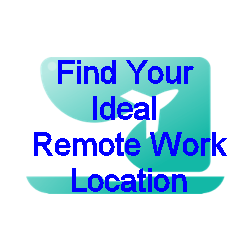Are you thinking of working remote in Greece? If you’re considering traveling and working remotely, there are many places around the world that could fit your preferences. However, with an unemployment rate of 23% as of April 2018, Greece may not be the first country that comes to mind when thinking about remote work. In fact, it was ranked as the worst EU country in which to start a business in 2017 by the World Bank Group and European Investment Bank Group, but it’s still possible to find remote work while living in Greece thanks to its thriving tech scene. And if you are already setup for remote work, it’s not a bad place to setup camp. Here are some reasons why you should consider Greece for working remote.
Greece has great weather
The weather in Greece is amazing. The warm sun and cool sea breezes make it easy to get outside and enjoy your time off. Having access to fresh air, sunshine, and exercise will help keep you healthy while working remotely. Not only that, but staying outside and active will provide a change of scenery from what you are normally used to—no matter where you work from day-to-day. These benefits will boost your energy levels, making it easier to focus when working remotely.
Internet speed isn’t an issue
Internet speeds have dramatically increased in recent years, meaning you can have all of your business information at your fingertips. Many European countries are also investing in better infrastructure, so expect to see faster speeds as time goes on.
There are cool coworking spaces
Who doesn’t want to work in an awesome coworking space that has access to beautiful beaches, delicious food and stunning views? By working remotely in Greece, you can enjoy all of these things without leaving your home office. Athens is a great place to try out remote work, but it’s not your only option. There are also wonderful places like Mykonos or Crete if you’re looking for something a little more low-key.
Greek people are friendly
The saying goes There are no strangers in Athens, only friends you haven’t met yet. Greek people are incredibly friendly and welcoming to foreigners, and will be more than happy to show you around their town. In fact, they may invite you to join them on a kafeneio (Greek coffee house) visit.
Rent is cheap
A studio in Athens will run you anywhere from $300 to $600 a month. If that’s not enough space, you can get an apartment with two bedrooms and a kitchen for about $1000 USD per month. In comparison, San Francisco has one of the highest median rents in America at just over $4K USD per month. If you want to save some money and live near one of Europe’s best food scenes, consider moving to Athens.
Location, location, location
Most importantly, think about why you want to work abroad. If it’s to save money or explore another culture, then working from a coffee shop in another country may not be your ideal solution. Instead, working from home allows you to commute and still be productive.
The Mediterranean diet helps with creativity
According to a study by a group of Greek researchers, consuming foods rich in omega-3 (such as fatty fish) can positively affect creativity and improve problem-solving skills. Since finding new ways to solve problems is an important part of working remotely, it’s important to nourish your brain with healthy fats!
If a company offers you a job in Greece, say yes!
It is much easier to work remotely in Greece than in any other country. If you are an entrepreneur and you want to start your own company, consider opening it in a different country, such as Greece. The government treats small businesses very well, making it easy to set up your business and get things going. In addition, income tax on small business profits are only 20%. On top of that, employers can deduct their cost of employing someone from their gross revenue before calculating profit and taxation.
Working Remote in Greece
You may want to check with a lawyer when getting setup to work remote in Greece. Polina Xintarakou is a Lawyer in Greece who also knows a few things about working remote. She provided the following tips for non EU citizens:
Here are the essentials that you are going to need (for non EU citizens):
- a VISA to enter the country (a tourist’s VISA usually works, but there are other types as well) and
- a permit to live in the country for more than 3 months (period that the tourist VISA usually covers).
Which kind of permits are required?
If you have (and can prove that you have) a global annual income of €24.000 you can apply for a permit as a financially independent individual. This permit has a duration of two years and you can extend it to family members under certain conditions. Keep in mind that, in case you wish to renew it before it expires, your absence from the country should not exceed 6 months annually.
If you wish to acquire real property in Greece and the agreed price exceeds €250.000, then you are entitled to an investor’s permit that applies for five years and you can extend it to your family members as well. If you wish to renew it, please note that no time limits of absence apply here. And the good thing is that you can lease your property and earn extra money from this.
Digital nomads are also welcome to the country as they are and they are entitled to apply for a digital nomad permit. What do you need to start thinking of this? An employment contract with a company that is established abroad (not in Greece) and proof of an annual income of €42.000. This is a fast track procedure, the permit lasts for 12 months, it can be extended to family members too and can be renewed under certain conditions.



